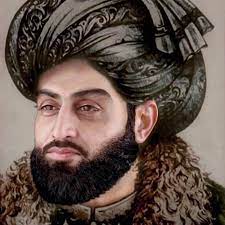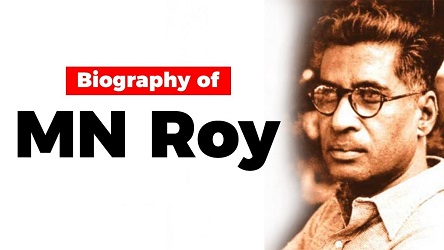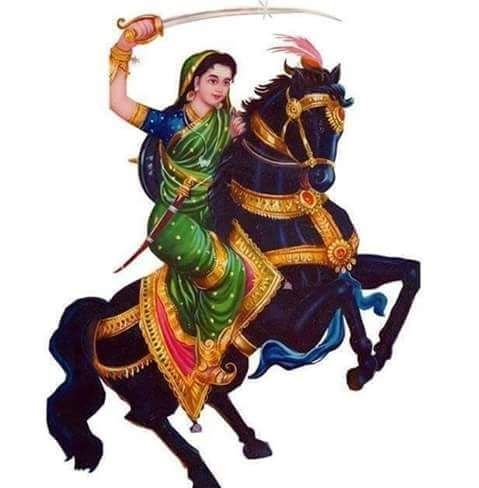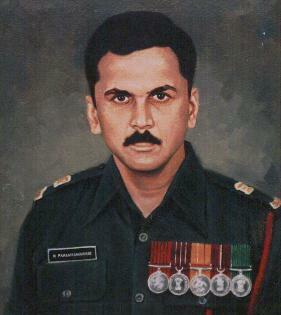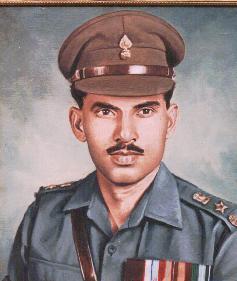Ahmad Shah Abdali, also known as Ahmad Shah Durrani, was a significant figure in Afghan and South Asian history during the 18th century. His reign as the founder and ruler of the Durrani Empire left a lasting impact on the political landscape of the region. In this comprehensive narrative, we will explore the life, achievements, military campaigns, and legacy of Ahmad Shah Abdali in detail.
Early Life and Rise to Power
Ahmad Shah Abdali was born on October 1722 in Multan, in present-day Pakistan, to Sardar Zaman Khan Abdali of the Popalzai Pashtun tribe. His family had strong ties to the Pashtun tribal networks that spanned across Afghanistan and parts of present-day Pakistan. Abdali’s early life was shaped by the turbulent political environment of the time, characterized by power struggles among various Afghan tribes and the declining influence of the Persian Safavid Empire in the region.
Abdali’s first major step towards power came when he joined the service of Nader Shah, the powerful Iranian ruler, as a young military commander. He distinguished himself in battle and quickly rose through the ranks, earning Nader Shah’s trust and admiration. After Nader Shah’s assassination in 1747, a power vacuum emerged in the region, setting the stage for Ahmad Shah Abdali to assert his authority and establish his own empire.
Founding the Durrani Empire
In 1747, following Nader Shah’s death, Ahmad Shah Abdali declared himself the ruler of Afghanistan and established the Durrani Empire. The empire was named after the Abdali Pashtun tribe, also known as the Durrani tribe, to which Abdali belonged. His coronation marked the beginning of a new era in Afghan history, with Kandahar as the initial capital of the empire.
One of Abdali’s notable achievements was his ability to unify various Pashtun tribes and other Afghan factions under a centralized authority. This consolidation of power allowed him to expand his influence beyond Afghanistan’s borders and assert control over neighboring regions, including parts of present-day Pakistan, Iran, and India.
Military Campaigns and Conquests
Ahmad Shah Abdali’s military campaigns were instrumental in shaping the territorial extent and influence of the Durrani Empire. He was a skilled military strategist and commander, known for his swift and decisive actions on the battlefield. Abdali’s campaigns were not limited to defensive measures but also included aggressive expansion to strengthen his empire and assert dominance in the region.
Battle of Panipat (1761)
One of the most significant military engagements in Ahmad Shah Abdali’s career was the Third Battle of Panipat, fought on January 14, 1761. The battle took place near Panipat, in present-day Haryana, India, between Abdali’s Durrani forces and the Maratha Empire led by Sadashivrao Bhau.
The Battle of Panipat is considered one of the largest and bloodiest battles in Indian history, with hundreds of thousands of soldiers involved on both sides. Ahmad Shah Abdali’s well-trained and disciplined Afghan cavalry, coupled with strategic maneuvers, inflicted a decisive defeat on the Maratha forces. The battle’s outcome significantly weakened the Maratha Empire’s influence in northern India and established Abdali as a formidable military leader in the subcontinent.
Conquests in India
Following his victory at Panipat, Ahmad Shah Abdali conducted several military campaigns in northern India, aiming to consolidate control and extract resources from the wealthy Mughal provinces. His campaigns targeted regions such as Punjab, Delhi, and Uttar Pradesh, where he faced resistance from local rulers and remnants of the Mughal Empire.
Despite facing opposition from regional powers and alliances, Abdali’s military prowess and strategic alliances with tribal and regional leaders allowed him to establish temporary control over vast territories in northern India. His incursions into Indian territories marked a period of turmoil and power shifts in the region, with various local rulers vying for influence amidst declining Mughal authority.
Legacy and Impact
Ahmad Shah Abdali’s legacy is multifaceted and continues to be a subject of historical analysis and debate. Here are key aspects of his legacy and impact:
1. Establishment of the Durrani Empire:
Abdali’s founding of the Durrani Empire and his ability to unify diverse Afghan tribes under a centralized authority laid the foundation for a period of relative stability and territorial control in Afghanistan and neighboring regions.
2. Military Skill and Strategic Influence:
Abdali’s military campaigns, especially the Battle of Panipat, showcased his tactical brilliance and the effectiveness of Afghan cavalry tactics. His influence as a military leader extended beyond Afghanistan, impacting the political dynamics of northern India and shaping subsequent power struggles in the region.
3. Impact on Indian History:
The Third Battle of Panipat and Abdali’s subsequent campaigns had a profound impact on Indian history. They marked a shift in power dynamics, weakening the Maratha Empire’s hold on northern India and contributing to the eventual decline of the Mughal Empire.
4. Pashtun Identity and Tribal Unity:
Ahmad Shah Abdali’s legacy is also intertwined with Pashtun identity and tribal unity. His efforts to unite Pashtun tribes under a common banner resonated with nationalist sentiments and contributed to a sense of Pashtun identity that persists in Afghanistan and Pakistan today.
5. Historical Interpretations and Controversies:
While Abdali is celebrated as a national hero in Afghanistan for his role in establishing the Durrani Empire, his campaigns in India, especially the Battle of Panipat, are viewed differently in Indian historiography. Historical interpretations vary, with debates over Abdali’s motivations, impact on Indian polity, and legacy in Indian memory.
Conclusion
Ahmad Shah Abdali’s life and legacy encompass a complex tapestry of military conquests, political maneuvering, and cultural influences. As the founder of the Durrani Empire and a pivotal figure in Afghan and South Asian history, Abdali’s contributions and impact reverberate through centuries of historical narratives and contemporary debates.
His military campaigns, especially the Battle of Panipat, left an indelible mark on Indian history, shaping the trajectory of regional powers and influencing subsequent political developments. Abdali’s legacy as a skilled military commander, unifier of Afghan tribes, and symbol of Pashtun identity underscores his enduring significance in the historical consciousness of Afghanistan, Pakistan, and India, highlighting the interconnectedness of regional histories and geopolitical dynamics.

